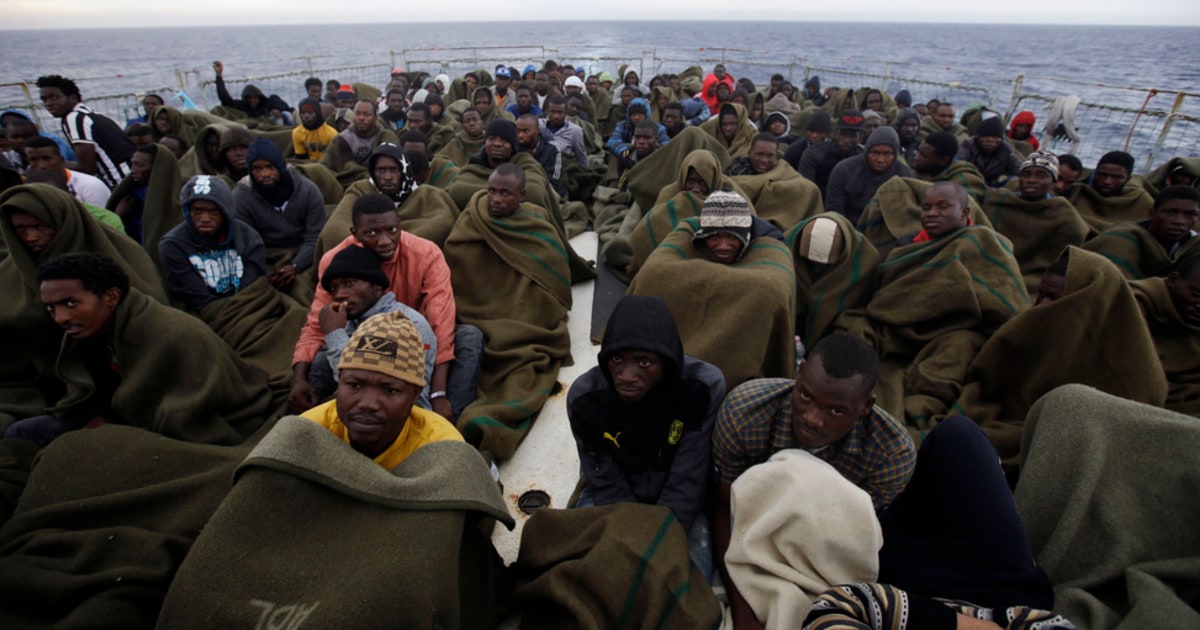Enlarge image
Migrant workers wait at a bus station in India to return to their hometowns during a nationwide lockdown (March 2020)
Photo: ANUSHREE FADNAVIS / REUTERS
The number of migrants worldwide continued to grow during the pandemic.
However, with significantly different routes - and slower than expected.
That is the result of the new annual report of the International Organization for Migration (IOM).
The UN organization reports that mobility has "changed radically" around the world.
"This report is different from any other edition," it was now called for publication.
For 2020, the report counts around 281 million migrants worldwide - two million fewer than was expected before the pandemic.
In 2019 there were 272 million people, in 1970 only 84 million.
The UN organization sees clear regional differences.
In Asia and Europe in particular, the number of migrants has risen above average over the past few decades.
Almost 20 percent of the world's migrants come from just six Asian countries: In addition to India, China and Bangladesh, this also includes Pakistan, the Philippines and Afghanistan.
The IOM also refers to the very different forms of migration.
In addition to fleeing war and violence, the report also examines the development of labor migration.
At 60 percent, it accounts for the largest part of migratory movements worldwide.
The UN report also names climate-related migration as an increasingly important problem, for example in countries such as China, Bangladesh, Haiti and the USA.
Pandemic changes everything
The current corona pandemic has now led to a historically unprecedented situation.
"We are witnessing a paradoxical situation that has never existed in human history," said IOM Director General António Vitorino.
"While billions of people were restricted in their freedom of movement by Covid-19, tens of millions of others were displaced within their own countries." The report counts among the most frequent causes of this, in addition to military and political conflicts, also fleeing the consequences of the pandemic.
Significant increase in internal migration
The IOM cites the situation in several countries as examples of the effects of the corona pandemic.
In Fiji, for example, the travel restrictions "destroyed" the tourism industry, with which the country generated 40 percent of its gross domestic product in the past.
In Bangladesh, the restrictions on freedom of movement and the rise in unemployment had again led to an "unpredictable" situation.
Money transfers from migrant workers home, once the country's second largest source of income, have hardly been possible since the beginning of the pandemic.
This problem has also been observed in other countries.
While migrant workers transferred $ 719 billion in 2019, the figure dropped to 702 billion last year, the report said.
Many of those affected have returned to their home countries due to the current situation.
In some places this migration has led to new problems.
Returnees had spread the virus, and borders were then closed again for fear of it.
As an example, the IOM cites the fate of tens of thousands of Nepalese who were temporarily stuck on the border of their home country with India.
Germany is also feeling the consequences
The report explicitly names Germany as a western case study for the effects of the pandemic. The IOM recalls that the restrictions would have led to a labor shortage here as well. In agriculture in particular, tens of thousands of harvest workers were briefly short of last year. Finally, the entry of migrants from Eastern Europe was made possible through special regulations.
The report is also a reminder of how diverse travel opportunities are globally.
While people from countries with a "very high level of development" can enter around 85 percent of all countries without a visa, this is hardly possible for a large number of people from less developed countries.
Irregular migration is often the most realistic option for these people, according to the IOM.
The UN organization names these unequal conditions with a very clear term: »Birth Lottery«.
This contribution is part of the Global Society project
Expand areaWhat is the Global Society project?
Reporters from
Asia, Africa, Latin America and Europe
report under the title “Global Society”
- on injustices in a globalized world, socio-political challenges and sustainable development.
The reports, analyzes, photo series, videos and podcasts appear in a separate section in SPIEGEL's international department.
The project is long-term and is supported by the Bill & Melinda Gates Foundation (BMGF).
A detailed FAQ with questions and answers about the project can be found here.
AreaWhat does the funding look like in concrete terms?
The Bill & Melinda Gates Foundation (BMGF) has been supporting the project since 2019 for an initial three years with a total of around 2.3 million euros - around 760,000 euros per year.
In 2021, the project was extended by almost three and a half years until spring 2025 on the same terms.
Are the journalistic content independent of the foundation?
Yes.
The editorial content is created without the influence of the Gates Foundation.
Do other media have similar projects?
Yes.
Big European media like "The Guardian" and "El País" have set up similar sections on their news sites with "Global Development" and "Planeta Futuro" with the support of the Gates Foundation.
Have there already been similar projects at SPIEGEL?
In the past few years, SPIEGEL has already implemented two projects with the European Journalism Center (EJC) and the support of the Bill & Melinda Gates Foundation: the “Expedition ÜberMorgen” on global sustainability goals and the journalistic refugee project “The New Arrivals” within the framework several award-winning multimedia reports on the topics of migration and displacement have been produced.
Where can I find all publications on global society?
The pieces can be found at SPIEGEL on the topic Global Society.











/cloudfront-eu-central-1.images.arcpublishing.com/prisa/KMEYMJKESBAZBE4MRBAM4TGHIQ.jpg)


